Okay, let’s be honest — you wouldn’t be here if you weren’t wondering, “How much is composite bonding?”
It’s one of those things nobody really likes to bring up. You don’t want to walk into a dental clinic and feel awkward asking, “So… what’s the damage?” after already picturing your dream smile.
And if you’ve been scrolling through social media? Half the videos make it look like you can fix your whole front row for under £500. The other half show £2,000+ treatments. So… which is it?
Here’s the real answer, no fluff: in the UK in 2025, composite bonding usually costs between £200 and £450 per tooth. For four to six teeth — like your front smile zone — that’s typically £900 to £1,700.
But this isn’t just about price tags. It’s about what you’re actually getting for your money. Because yeah, it’s not the cheapest dental fix out there — but done right, it’s a total game-changer.
So let’s break it down like we’re sitting across the table at a coffee shop, and I’m telling you everything I wish I’d known before my friend got hers redone twice.
What It Is

Composite bonding is where your dentist uses a tooth-coloured resin — basically a fancy dental putty — to reshape, resize, or repair a tooth. It’s the go-to fix if you’ve got a chip, a gap, or just want a smoother, whiter edge without going under the drill.
And the best part? No major prep. No shots (usually). It takes one appointment. And if you change your mind later? It can be removed. Unlike veneers, it’s not permanent. That’s huge.
But here’s the thing a lot of people don’t realise: not all bonding is created equal.
I had a mate who went to a “cheap” clinic, paid £500 for four teeth, and two months later — one chipped on an apple. Ouch. Not just the bite, but the refund situation too.
So when you ask, “how much is composite bonding?”, what you’re really asking is: “What’s a good result going to cost me?”
Cost Per Tooth
Let’s get into the numbers, because “it depends” is not helpful when you’re budgeting.
Composite bonding cost per tooth in the UK right now? Most places charge between £200 and £450. But — and this is important — that depends heavily on what they’re doing.
Think of it like painting a wall. A small touch-up on a corner? Cheap. Repainting the whole thing, edge-to-edge, with perfect blending? That’s more time, more skill, more cost.
Same here.
If you just need a little chip filled or a tiny gap closed? You’re likely on the lower end — maybe £200–£280. But if you’re reshaping a whole tooth, lengthening a short one, or fixing something that’s been worn down for years? That’s complex. And complex means £350+, sometimes £450.
At The Modern Dentist in Shoreditch, for example, they quote £200–£250 for minor fixes but go up to £450 for reconstructive work — which makes total sense when you see how much time and detail goes into it The Modern Dentist.
Full Smile Cost
But most of us aren’t just fixing one tooth. We’re thinking about that front six or eight — the ones people see when we smile.
So what’s the cost of dental bonding per tooth when you’re doing a full set?
Most clinics charge per tooth, not per visit. But some offer small discounts when you do multiple.
| Teeth Treated | Typical Total Cost (2025) |
|---|---|
| 1–2 teeth | £400 – £900 |
| 4 teeth | £900 – £1,200 |
| 6 teeth | £1,495 – £1,695 |
| 8 teeth | £1,895 – £2,395 |
| 12+ teeth | £3,000 – £4,800+ |
Yeah, that adds up. But when you compare it to porcelain veneers — which can be £800–£1,000 per tooth — bonding starts to look like a seriously smart move.
I get it, though — saving over a grand is one thing, but what if it doesn’t last?
Good news: with decent care, composite bonding lasts 5–8 years. Some people even get 10 SmileDent Greenlanes.
Why Prices Vary
“Wait — why does one place charge £250 and another £400 for the same thing?”
Great question.
It’s not just your imagination. Prices vary — a lot — and here’s why.
First, the dentist’s skill. That’s the biggest factor. Some dentists do bonding as an extra. Others specialise in it. A dedicated cosmetic dentist — especially one trained by the British Academy of Cosmetic Dentistry (BACD) — spends years mastering how light reflects off teeth, how to layer resin for that natural depth, and how to match your exact shade.
That expertise? It costs more. But it shows.
Then there’s location. A clinic in central London has higher rent, higher staff costs. So bonding there might be £450 per tooth, while a rural practice charges £280. Not necessarily better or worse — just different.
And materials matter. Seriously.
Some clinics use basic dental resin — cheap, but yellows faster. Others use premium brands like Empress Direct or GC G-aenial — same stuff used in high-end labs. They blend better, stain less, last longer.
So if a quote seems too good to be true? Ask what material they’re using.
Bonding For Gaps

Let’s talk about one of the most common reasons people get composite bonding: gaps.
Yeah, that little space between your front teeth — called a diastema. Maybe it’s always been there. Maybe you like it. But if you don’t? Bonding is one of the fastest, most affordable ways to close it.
Bonding teeth for gaps usually falls in the £300–£400 range per tooth, depending on size. Small gap? Less material, less time, less cost. Big one? They’ll need more resin, more sculpting, more precision.
And done right? You won’t even see where the tooth ends and the bond begins. It just looks like you were born with a perfect smile.
But — and this is key — if the gap is huge or your teeth are misaligned, bonding might not be the best fix. In those cases, teeth bonding vs veneers becomes a real conversation. Or even orthodontics.
One thing I’ve noticed: TikTok makes it look easy. But a rushed job can leave rough edges, or worse — gaps that trap food.
So if you’re closing a gap, make sure your dentist checks your bite and how the teeth come together. You don’t want to fix your smile and mess up your chewing.
Hidden Costs
Alright, let’s talk about what nobody wants to admit: the “extra” costs.
No, your dentist shouldn’t nickel-and-dime you. But there are a few things you should budget for.
First, follow-up visits. Some clinics include one free check-up. Others charge if you need minor adjustments — usually £75–£100.
Then there’s repairs. If you chip a corner? It happens. But fixing it is way cheaper than starting over — usually £50–£150 per tooth.
And over time? Your bonding might pick up stains from coffee, red wine, or smoking. A polish can freshen it up — sometimes included, sometimes £50 extra.
Oh, and financing. If £1,500 feels steep — you’re not alone. But many clinics offer 0% finance over 12 or 24 months. At Chapel Dental, for instance, you can spread the cost with no deposit and no interest Chapel Dental. So £1,500 becomes £125 a month. Much better.
Veneers vs Bonding
This one comes up every time: should you just get veneers instead?
Let’s be clear. Porcelain veneers are gorgeous. They last 10–15 years. They’re super stain-resistant. And yeah — they cost £800 to £1,500 per tooth.
But there’s a big trade-off: to fit them, your dentist has to file down your natural tooth — usually removing a chunk of enamel. That’s permanent. And once it’s gone, it’s gone.
Composite bonding? No drilling. No removal. It’s added on top. So if you change your mind? It comes off, and your original tooth is still intact.
So which is better?
If you’ve got major alignment issues, or want a long-term, ultra-durable fix — veneers might be worth it.
But if you’ve got small chips, gaps, or just want to see what a new smile feels like? Bonding is way kinder to your teeth — and your wallet.
NHS Coverage

So… does the NHS cover composite bonding?
Short answer: almost never.
Because it’s considered cosmetic, the NHS doesn’t fund it. You’ll have to go private.
But — there’s a tiny grey area. If your tooth is chipped due to an accident and it’s causing pain or functional issues, the NHS might cover a basic repair. But they won’t give you a “smile makeover.”
So unless it’s medically necessary, expect to pay out of pocket.
Is It Worth It?
Alright, final question: is composite bonding worth the cost?
Let’s look at the facts.
Pros:
- One visit, no pain
- No drilling, no damage to natural teeth
- Instant results
- Fixes chips, gaps, stains, short teeth
- Much cheaper than veneers
Teeth bonding disadvantages:
- Can stain over time
- Less durable than natural enamel
- May need repairs every few years
- Results depend heavily on the dentist
So — would I do it again? Yes. 100%.
But — would I go to the cheapest option on Google again? Nope.
I’ve seen too many people rush into it, save a few hundred, and then spend more fixing mistakes.
The truth is, your smile is worth the right investment. And “right” doesn’t always mean “cheapest.”
The Bottom Line
So, how much is composite bonding in 2025?
Realistically: £200–£450 per tooth. £900–£1,700 for a full front smile. Higher in London, slightly less elsewhere.
It’s not “budget” dentistry. But it’s not luxury pricing, either. It’s right in the sweet spot — fast, affordable, reversible, and life-changing when done well.
So what should you do next?
Get a free consultation. Most clinics offer them. Ask to see before-and-after photos of real patients. Ask about their materials, their training, their repair policy.
And don’t be afraid to walk away if it doesn’t feel right.
Because your smile? It’s not just teeth. It’s confidence. It’s how you show up in photos. It’s how you feel when you laugh.
And if a few hundred pounds can give you that? Honestly, that might be the best investment you make all year.
What do you think? Have you had composite bonding? Or are you still on the fence? I’d love to hear your story — drop a comment or just think it over. Either way, you’ve got this.




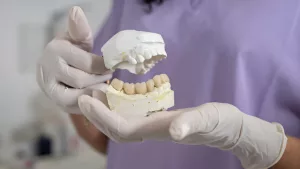
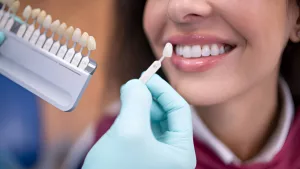
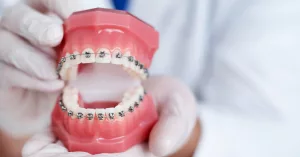

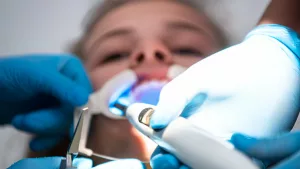
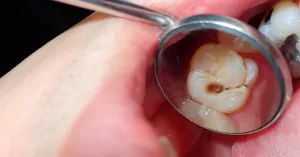















Leave a Reply
You must be logged in to post a comment.